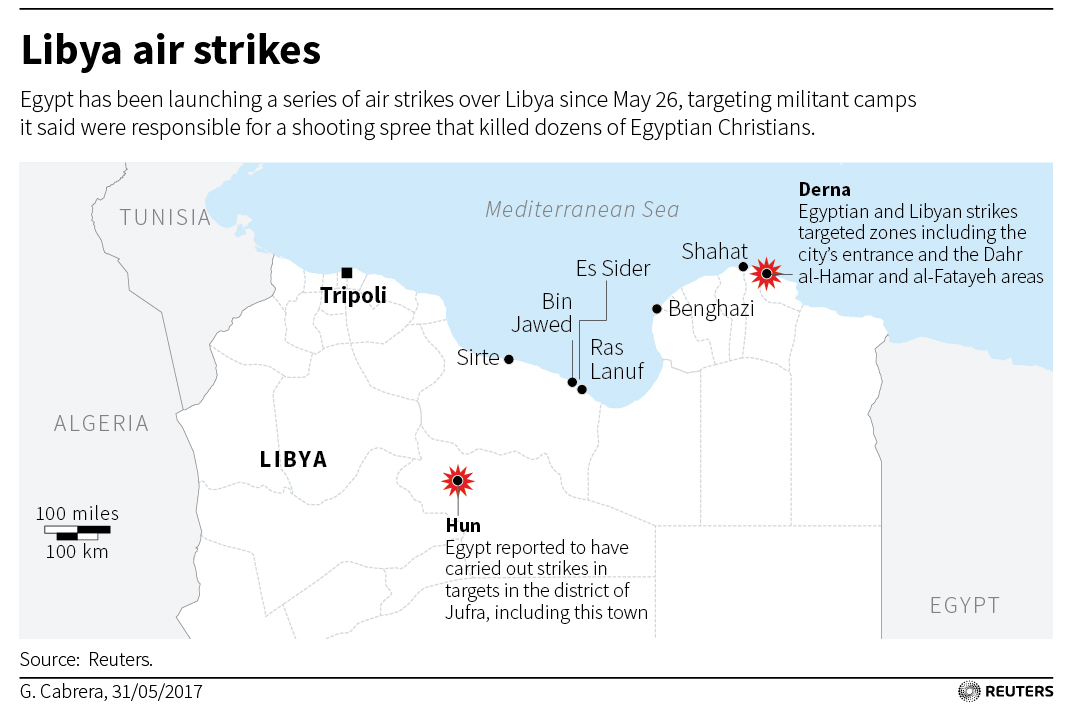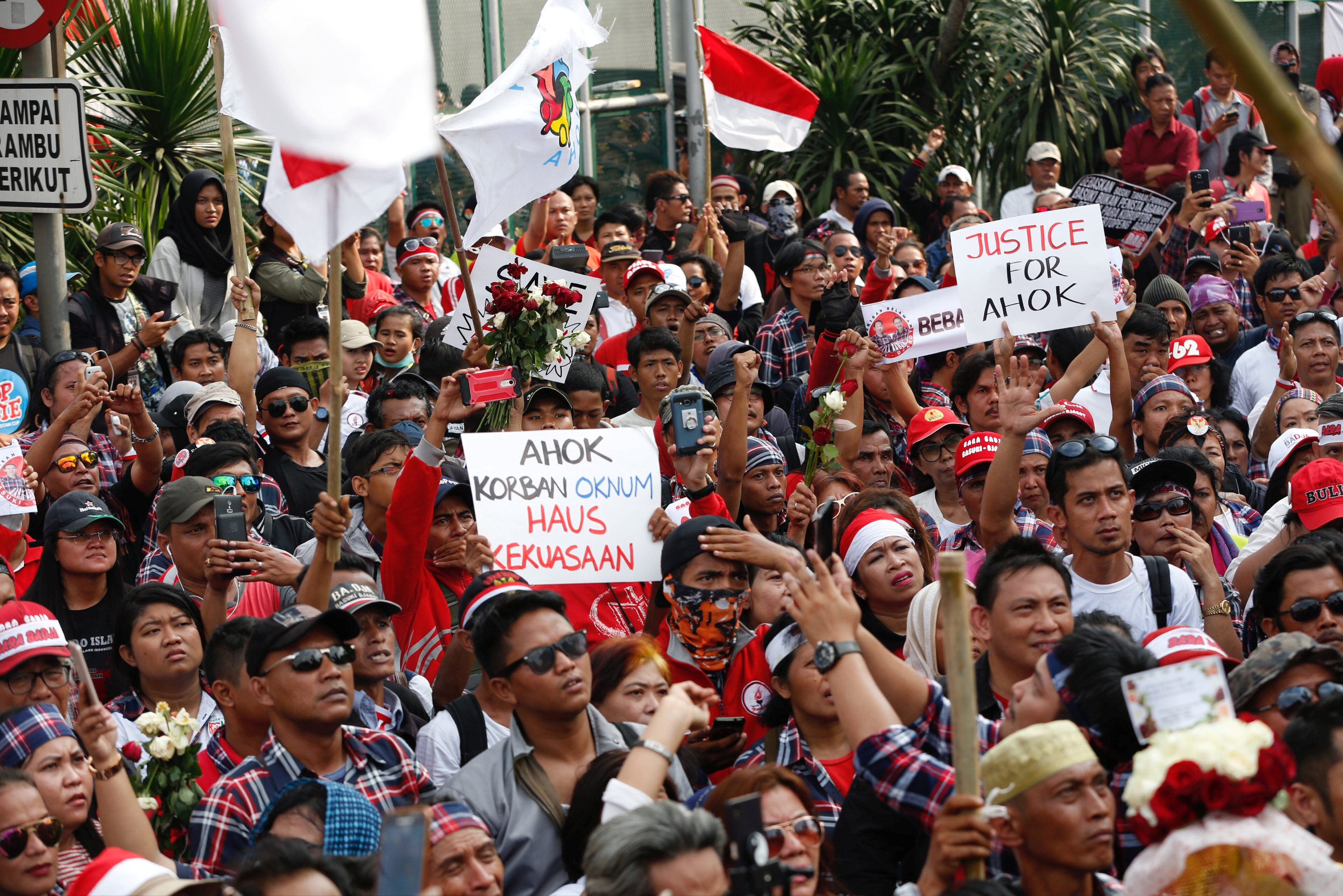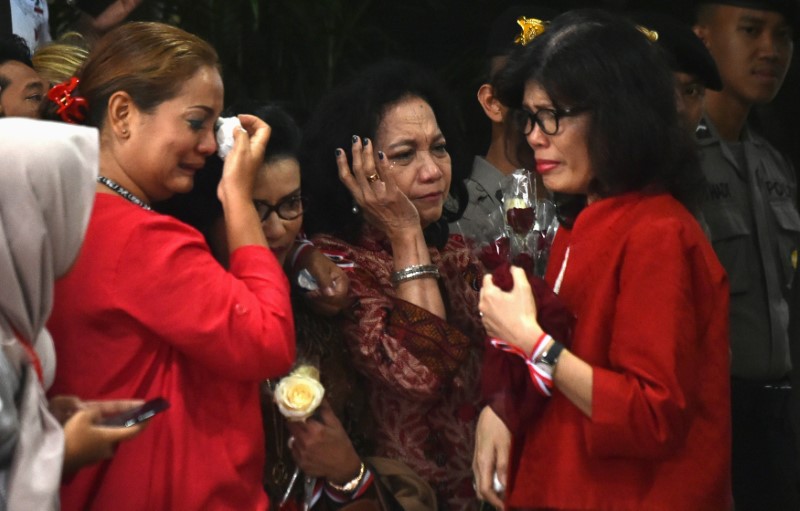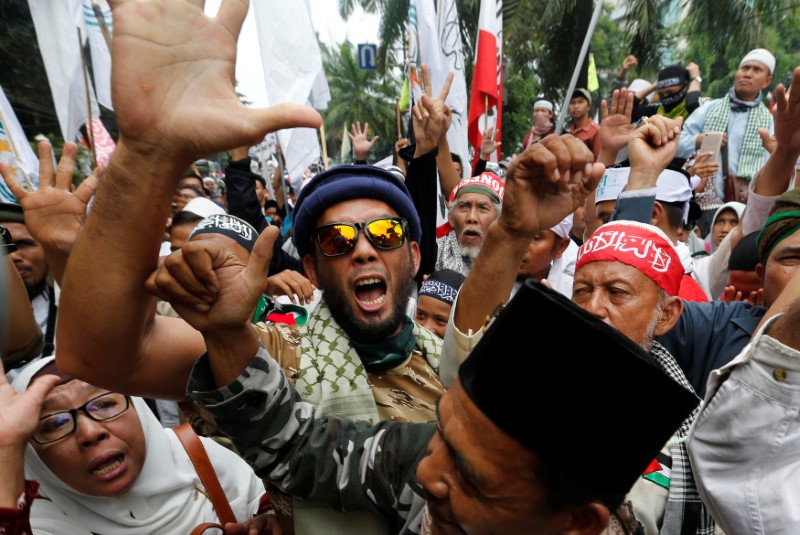
By Ahmed Aboulenein and Giles Elgood
CAIRO (Reuters) – Egyptian President Abdel Fattah al-Sisi was quick to launch air strikes on militants in Libya in response to a deadly attack on Coptic Christians in Egypt – but the attacks do not seem to be targeting those responsible.
The response was popular with many Egyptians. The country’s state-owned and private news media celebrated it as swift justice, but the president has been vague about exactly who he is attacking.
The strikes have been directed at Islamist groups other than Islamic State, which claimed responsibility for Friday’s massacre of dozens in the southern province of Minya, and seem to be intended to shore up Sisi’s allies in eastern Libya.
“The attacks in Minya were claimed by Islamic State, and there are Islamic State elements active in Libya, but the reports coming indicate Cairo is targeting other groups,” said H.A. Hellyer, senior nonresident fellow at the Atlantic Council.
In any case, analysts say the strikes will not do much against Islamists in Cairo, Sinai and Upper Egypt, where they have had a stronghold since the 1990s and have been attacking tourists, Copts and government officials.
Bombing the camps in Libya is seen as a diversion for a failure to defeat Islamists inside Egypt.
“It’s easier to strike a terrorist camp in Libya by air than it is to clean up serious problems inside Egypt; sectarianism, radicalization, that led to this and other attacks,” said Michele Dunne, director of Carnegie’s Middle East program.
“All the horrific terrorism that is happening inside Egypt has purely domestic drivers and probably would be happening if Islamic State did not exist. It is not all that different from the home-grown terrorism Egypt experienced in the 1990s, before Al Qaeda or Islamic State even existed,” she said.
LIBYAN ALLY
Egyptian and Libyan officials said strikes had been launched on camps and ammunition stores belonging to the Derna Mujahideen Shura Council (DMSC). Areas targeted include the western entrance to Derna, Dahr al-Hamar in the south, and al-Fatayeh, a hilly area about 20 km (12 miles) from the city.
Yet the DMSC has never been involved in attacks outside Libya and in fact mostly limits its activities to Derna, rarely fighting in larger conflicts within Libya, according to Mohamed Eljarh, an Atlantic Council political analyst in Libya.
The group has denied taking part in attacks inside Egypt.
In fact, many suggest the air strikes had been planned in advance to shore up support for Sisi’s main Libyan ally, Khalifa Haftar and his self-styled Libyan National Army (LNA), and that the Minya massacre was used as a pretext to launch them.
Forces loyal to Haftar, a military strongman like Sisi, have long been fighting the DMSC, cutting off supply routes to the city and hitting it with occasional air strikes. Despite the LNA’s siege, the military situation in Derna has been in stalemate for months.
Egypt has also carried out strikes in Jufra, where the LNA has been fighting Islamists who fled Benghazi as well as forces linked to the U.N.-backed government in Tripoli.
The LNA lost dozens of men there in a surprise attack on an air base earlier in May, but has since consolidated control.
The Minya attack was a catalyst for those inside the Egyptian government and military who are in favor of military intervention in Libya, said Mokhtar Awad, who researches extremism at George Washington University.
“This is Egypt taking action not because of the Minya attack but … to drive out as many extremists as possible from the east,” he said.
‘THEY ARE ALL TERRORISTS’
Egypt says it does not target specific groups but that it goes after all militants who could be a threat to its security. A military spokesman told state media on Monday that all the groups targeted have the same ideology as those who carried out the Minya massacre, which is reason enough to bomb them.
“Names are not important for us, they are all terrorists. Those who carried out the Minya operation do not necessarily have to be in these camps but their followers are,” an Egyptian intelligence source told Reuters.
Eljarh also said it was likely the air strikes has been planned in advance and that the Minya attack was an opportunity to carry them out, as part of a larger policy toward supporting Haftar, with Egypt bombing groups that constitute the strongest opposition to him.
Egypt sees any militant activity in eastern Libya, which is near its border, as a threat to its national security. One of the reasons Sisi has supported Haftar since 2014 is to ensure that all Islamists are driven out of eastern Libya.
Sisi is getting more involved now because of improved relations with Washington, Eljarh said. He believes U.S President Donald Trump has given him the green light to fight jihadists in Libya and elsewhere.
When Sisi announced the first round of air strikes on television on Friday, he implored Trump to support him.
Trump, who has made a point of improving relations with Cairo, said his country stood with Sisi and the Egyptian people.
(Additional reporting by Eric Knecht, Amina Ismail and Ahmed Mohamed Hassan in Cairo and Aidan Lewis in Tunis; editing by Andrew Roche)











